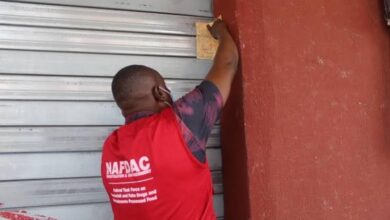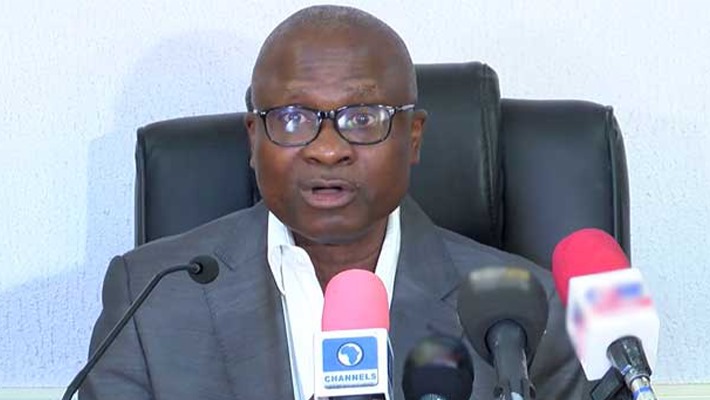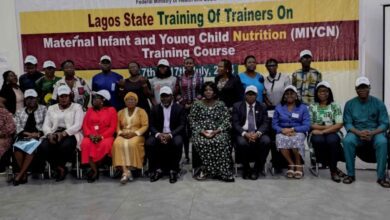Group Blames Maternal Mortality On Health Setbacks

The National Advocates for Health (NA4H), has said that maternal health setbacks in the country have contributed to women dying during pregnancy or childbirth.
Chairman, NA4H, Hon. Mohammed Usman disclosed this at a 2-day Meeting with NGOs, Media, and Young People to Promote Accountability for FP2030 Commitment, Every Newborn Action Plan (ENAP), Ending Preventable Maternal Mortality (EPMM) and Sexual Gender Based Violence organised by the
Africa Health Budget Network(AHBN)on Wednesday, June 14, 2023, in Abuja.
Usman advised that the new administration should see maternal health as a priority in the country, adding
that maternal deaths had either increased or stagnated nearly across the country.
He said that Sustainable Development Goal (SDG) target 3.1 was to reduce maternal mortality to less than 70 maternal deaths per 100 000 live births by 2030.
“In November 2021, new EPMM coverage targets were launched to meet the SDGs, and these were supplemented with several global, national, and subnationalEPMM indicators.
“The indicators highlight the need to increase coverage of quality maternal health care and improve women’s ability to make their own decisions about their sexual and reproductive health,” he explained.
He stated that unless the country makes progress on national targets for reducing maternal deaths – most of which were preventable – the lives of women dying in the country while giving birth would be more by 2023.
He also said that governments at all levels must look at the gaps that still exist, stressing that childbirth should be a time of life, not death.
According to him, “As stakeholders, we should play our role effectively to ensure the govt delivers on its commitment to FP, Enap, EPMM and Sexual Gender Based Violence Justice in Nigeria”.
He further commended AHBN for convening the annual meeting with NGOs, Young People, and Media to continue promoting accountability.
Health Economist, Monitoring & Evaluation Specialist of AHBN, Mrs. Maimuna Abdullahi called for renewed action in the country to meet the targets of reducing maternal, and newborn mortality, and stillbirth by 2030.
Abdullahi said that it was all about accountability, and this was something that Nigerians must take responsibility for.
She said that the new data and goals proposed by the launch of the first-ever joint ENAP and EPMM progress report improving maternal and newborn health and survival and reducing stillbirth showed that progress in improving survival has stagnated since 2015.
She added that the new administration need to ensure that the country was not reducing investments in health and social sectors and reorienting towards primary health care that delivers for maternal, newborn, and child health.
She also stated that, by bringing services closer to the community and ensuring that they were provided with quality care, the country could prevent many of the complications that it’s dealing with, and identify and address them at an earlier stage.
On his part, the Chairman, of Nigeria Meaningful Adolescents &Youth Engagement (MAYE) Working Group, Mr. Olympus Ade-banjo, said that the current political transition in the country poses an opportunity for existing family planning commitment.
Ade-banjo said that civil society and youth engagement were key to turning this transition into an opportunity for accelerated access to family planning towards achieving positive demographic dividends.
Also, the Information & Youth Engagement Officer of AHBN, Ms. Halimah Bello, said that stakeholders needed to ensure the successful delivery of FP2030 Commitments.
Bello informed that the retreat would empower stakeholders to track the progress of FP2030 implementation by the government and its partners and ensure that government fulfils its commitment.
According to her, the AHBN has continued to build the capacity of CSOs, and Media to track the progress of implementation by the government and its partners and hold the government responsible to account for these commitments.
“This is to promote accountability as well as develop advocacy strategies to track and monitor the commitments,” she said.
Under-five mortality remains high in sub-Saharan Africa despite the global decline. A 2021 UNICEF report says that it is as high as one death in every 14 children.
In Nigeria, the figure is staggering, standing at 56.220 deaths per 1000 live births, according to UNICEF 2022 report. Although his figure is a 2.57 percent decline from 57.701 deaths per 1000 live births, this is still unacceptable compared to statistics from other developing countries.
In Ghana for instance, the figure stood at 31.768 deaths per 1000 live births in 2022, a decline of 2.9 percent from the 32.735 deaths per 1000 live births recorded in 2021.
Pediatricians say one-quarter of these deaths are preventable through interventions such as immunisation.






